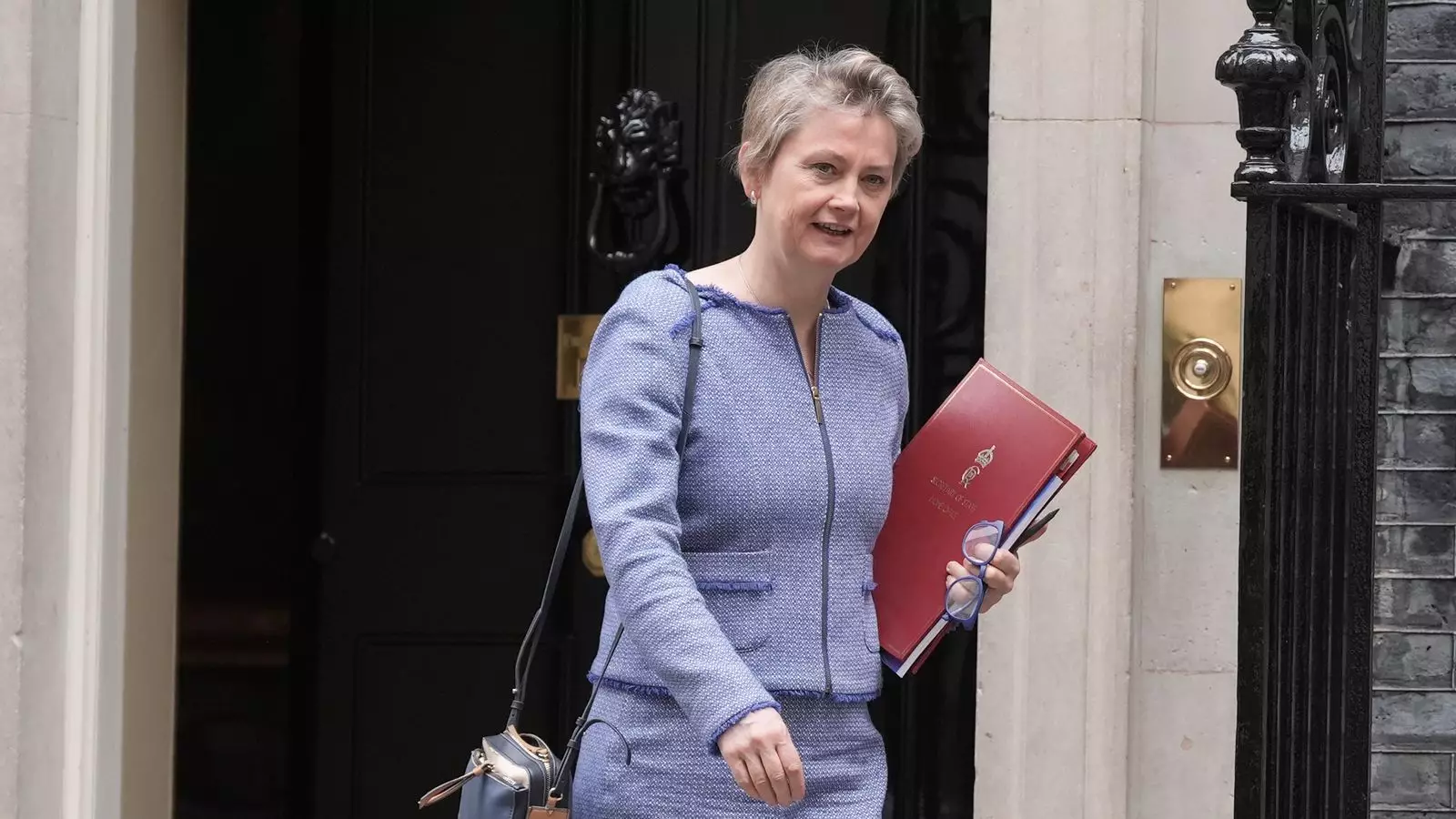The recent “one in, one out” agreement between the UK and France has been presented as a significant step toward solving the ongoing crisis at the English Channel. Yet, a closer examination reveals that this initiative is more about political optics than meaningful policy change. The UK government’s reluctance to specify concrete numbers and the absence of detailed operational plans expose a fundamental problem: the illusion of control in managing complex migration flows. This approach, rather than providing a durable solution, appears to be a temporary fix that sidesteps the deeper structural issues fueling migration and criminal smuggling networks.
The Home Secretary’s insistence on not fixing return targets underscores the tentative nature of this agreement. Instead of crafting a clear, enforceable framework, authorities prefer a step-by-step experimental approach, effectively delaying accountability and preventing genuine progress. This vague methodology risks expanding a policy that is destined to be reactive rather than proactive. The failure to set defined goals suggests that policymakers are more committed to deflecting criticism than to addressing the root causes driving migrants to undertake perilous crossings in the first place.
The Political Narrative vs. Reality
Prime Minister Keir Starmer and President Emmanuel Macron framed this deal as a breakthrough, yet their statements gloss over uncomfortable truths. Macron’s assertion that Brexit caused a surge in Channel crossings is a political oversimplification that distracts from responsibility. The UK’s departure from the EU removal of legal frameworks like the Dublin Regulation has indeed complicated return procedures, but pinning the entire crisis on Brexit allows policymakers to abdicate responsibility for effective migration management.
This approach shifts blame onto external factors, framing the crisis as a consequence of Brexit rather than a failure of policy and cooperation. It ignores the fact that illegal crossings are intrinsically linked to broader global factors—conflicts, economic disparities, climate change—factors over which neither France nor the UK has proven capable of comprehensive control. Instead of addressing these fundamental issues, the political elite prefers quick fixes and soundbites that give the illusion of action without tackling the systemic problems.
The Role of Smuggling Networks and Disinformation
A glaring concern often overlooked is the powerful role of criminal smuggling gangs that exploit political debates to their advantage. Minister Cooper’s comments about gangs “weaponizing” the situation are poignant, but they also reveal a passive stance. These gangs are perpetually one step ahead, using misinformation and fear-mongering to maximize profits and destabilize legal immigration channels. Their ability to adapt to policies like the “one in, one out” deal exposes the fragility of such agreements.
Criminal networks have long manipulated the political narrative, propagating the myth that tighter borders inherently lead to fewer crossings. Yet, history shows that these gangs thrive in environments where legal routes are limited or overly bureaucratic. Their capacity to exploit any perceived loophole indicates that without comprehensive reforms—such as expanded legal pathways and international cooperation—such agreements are doomed to be superficial at best.
The Flawed Assumption of Return and Refugee Fairness
Underlying this entire debate is a problematic assumption: that migrants crossing by boat are simply “illegal” and should be deterred through punitive measures. This narrow perspective ignores the humanity of asylum seekers—many fleeing war, persecution, and economic devastation. The notion of “returning” someone to France, for example, assumes that France can adequately process and support those migrants, which is often not the case.
Furthermore, the “one for one” premise ultimately commodifies human lives, reducing them to pawns in a political chess game. It suggests that for every migrant returned, a new legal entrant is admitted, but ignores the fact that many asylum Seekers are in need of safety, not politics. No amount of border tightening or bilateral deals can address the deeper moral imperative to offer refuge. Policies rooted in deterrence threaten to alienate the UK’s image as a principled defender of human rights, exposing a failure to reconcile national sovereignty with global responsibilities.
The Need for Genuine, Whole-System Solutions
The flawed optimism underpinning the “one in, one out” deal reveals an inherent tendency to favor quick fixes over sustainable solutions. Addressing the migration crisis requires a fundamental overhaul—one that emphasizes international cooperation, legal pathways, robust support systems, and tackling the root causes of displacement.
Politicians must abandon the narrative of border control as the primary answer and instead invest in diplomacy, economic development, and conflict resolution. It’s time for a shift away from reactive policies that criminalize vulnerable populations towards proactive strategies grounded in human rights and multilateral responsibility. Only then can the UK hope to move beyond symbolic gestures and toward meaningful progress that genuinely addresses the complex realities of migration.

Leave a Reply